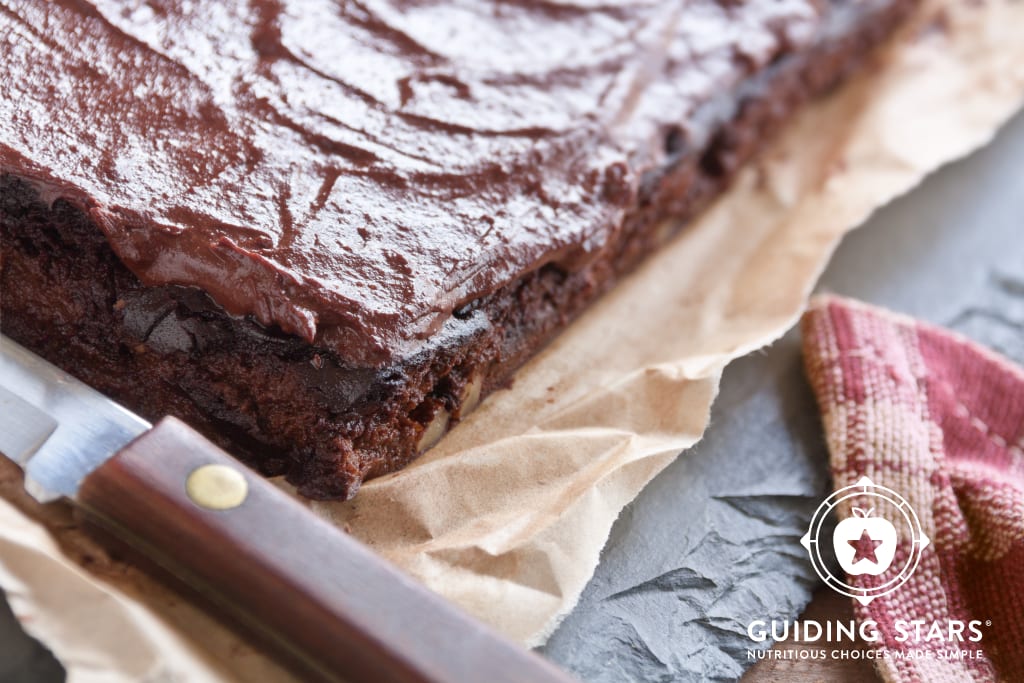Around the holidays (and on through January) you’ll see plenty of blog posts and recipes touting “guilt-free” desserts and treats. I admit that I’ve even used the phrase before when writing about how to modify recipes for sweets to make them lower in calories. I don’t use this phrase anymore, here’s why…
Food choices are not moral/immoral.
Calling a food “sinful” or labeling a more healthful version of a recipe “guilt-free” implies that certain food choices should induce guilt or feelings of being “bad.” That’s just ridiculous. It is just food! Choosing a regular brownie instead of a reduced-fat black bean-based brownie isn’t a moral decision. If lower-calorie foods are what you enjoy, then by all means, continue to eat them. But if choosing the regular brownie wracks you with food “guilt,” it might be time to examine the base of your food belief system (a Registered Dietitian who specializes in intuitive eating might be of help). Let’s be real: your health is not a matter of just what you eat, and in reality, no one food is going to make or break your health. So let’s give ourselves a break and stop assigning moral importance to food decisions.
Sweet Potato Brownies
Veggie-stuffed brownies are a point of contention with our recipe development team. Some love them, some don't. Choose what you love.
View recipe »“Cheat” meals/days promote disordered eating patterns.
Lots of current weight loss diet plans you see for sale on the internet or promoted in books include the concept of allowing oneself a “cheat” meal or “cheat” day. The idea here is that if you’re “good” with your eating all week, you can allow yourself to forget about your diet for one meal or one day. Purportedly, this will help you stick with your plan better, help your metabolism rebound from restriction and give you a break from the stress of the diet plan. I suspect “cheat” meals are somewhat effective at relieving the stress of adhering to a rigid diet each week. (I also suspect that they encourage binge-eating.) Getting a break from constant diet vigilance is good idea, but the very word “cheat” means that you’re doing something “bad.” Are you a bad person for wanting to have a few pancakes on Saturday morning? Would you tell someone else that they are bad because they wanted some mashed potatoes with their steak instead of broccoli? Of course not! That’s the problem with rigid diets—they are not sustainable as they are. If you need to severely restrict your eating such that you need a “cheat meal” to escape from it then that eating plan promotes an unrealistic way of eating. A healthful eating plan allows for some favorite foods and doesn’t make you pay for them by suffering through a week of deprivation first.
We all deserve to enjoy our food and feel good about eating and our bodies.
Concepts and behaviors that perpetuate a restrict-refeed-repent cycle make you feel bad about yourself. There are ways to nourish yourself that don’t make you feel bad, that empower you to trust yourself and your choices, and accept that you’re not perfect. We are all works in progress, too. If you’re interested in learning more about diet culture and its impacts on individuals and society, or about intuitive eating, or if you want to ditch diet culture and re-acquaint your body with its natural hunger and eating behaviors, there are places to go for help and information. There are a number of podcasts focused on intuitive eating, of course there are many books about making peace with food, and for individual help on your own eating journey, the Academy of Nutrition and Dietetics has a Find An Expert search function to direct you to a registered dietitian in your area.
Wishing you a happy new year free of food guilt!
